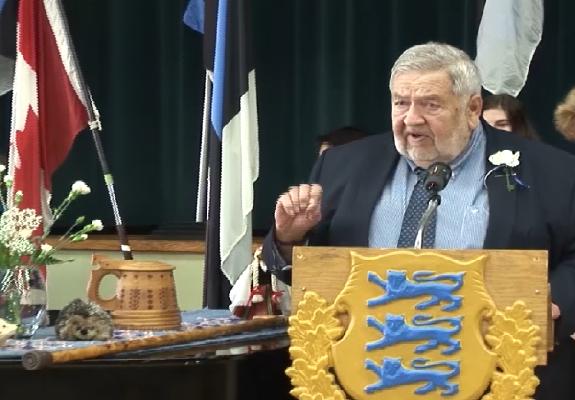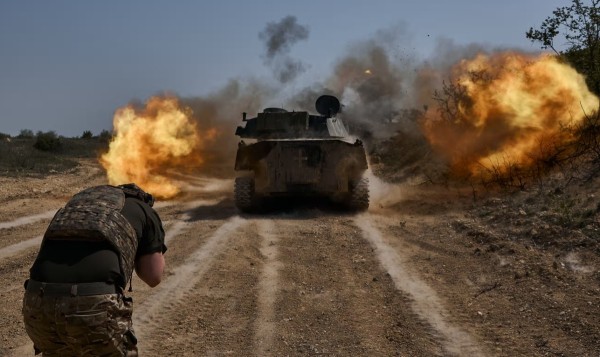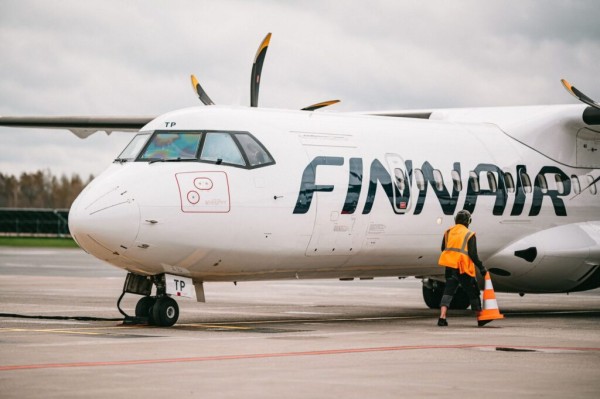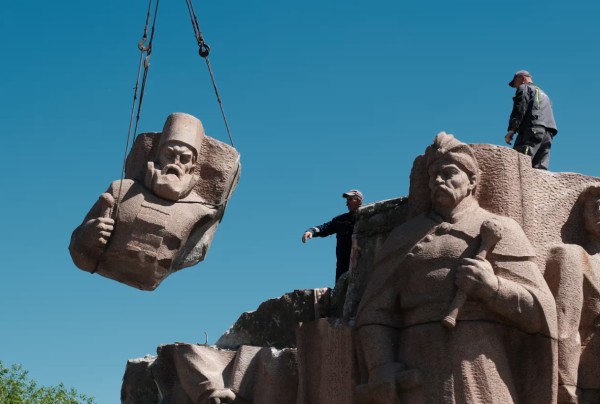
Laas Leivat
Estonia and Russia both bore the weight of a lengthy period of Soviet stagnation and repression. Both claim to be flourishing, open societies. Some international rankings of general quality of life show otherwise.
Several years ago Russia sent an invitation to all compatriots to return to the homeland. They sweetened the deal by offering substantial financial help in acquiring a new home in Russia. From Estonia less than ten families accepted, from a potential pool of some two hundred thousand ethnic Russians, not counting those that accepted the money but didn’t hold up their end of the agreement.
Many reasoned that the response was negligible because a substantial portion had been born in Estonia and didn’t therefore identify with any other country. A fair answer. But what about the tens of thousands who weren’t born in Estonia? Perhaps some well-established international ratings might offer another type of answer.
The Legatum Institute claims to promote policies that help societies move from poverty to prosperity. It evaluates levels of economic quality, business environment, governance, personal freedom, social capital, safety and security for each country. In its 2017 Prosperity Index, Estonia ranked 27th and Russia 101th out of 149 countries.
The Organization for Economic Co-operation and Development ranks countries through its Programme for International Student Assessment (PISA) by evaluating the quality, equity and efficiency of schools systems. The PISA study for 2015 focused on science with reading, mathematics and collaborative problems solving as minor areas of evaluation. Estonia ranked 3rd, Russia 31st out of 72 countries.
CATO Institute releases its Human Freedom Index regularly which studies 79 distinct indicators of personal and economic freedom in the following areas: rule of law, security and safety, movement, religion, association/assembly/civil society, expression and information, identity and relationships, size of government, legal system/property rights, access to sound money, freedom to trade internationally, regulation of credit/labour/business. The 2017 index ranked Estonia 13th, Russia 126th out of 159 countries.
The Press Freedom Index is an annual ranking of countries compiled and published by Reporters Without Borders based on its own assessment of a country’s press freedom records. It also takes into account the efforts of the country’s authorities to respect this freedom. It does not measure the quality of journalism or general violations of human rights. In the 2018 Index Estonia ranked 12th, Russia 148th out of 180 countries.
The Freedom House Annual Survey of civil liberties uses a checklist to monitor the progress and decline of human rights worldwide. It studies aspects such as a free and independent media, free religious institutions,, freedom of assembly/demonstration, freedom of political/quasi-political organization, free trade unions, independent judiciary, rule of law, protection from terrorism, freedom from extreme government indifference/corruption, open public/private discussion, personal autonomy. Estonia ranked 13th, Russia 133rd out of 195 countries.
The Economist Intelligence Unit Democracy Index measures the state of democracy by studying whether elections are free and fair, the security of voters, the influence of foreign powers on governments, and the capability of civil service to implement policies. Estonia in 2017 ranked 30th, Russia 135th out of 167 countries.
The Human Freedom Index is compiled by the Cato institute, the Fraser Institute and the Friedrich Naumann Foundation for Freedom. The 2017 Index places Estonia at 13th, Russia 126th out of 159 countries.
Transparency International studies levels of corruption around the world. It’s goal is to stop the abuse of power, bribery and secret deals. Its 2018 Corruption Perception Index gives Estonia a high ranking of 21 as the least corruption nation, Russia ranks 135 out of 180 countries.
It’s interesting to note that the Save the Children’s 2004 worldwide study of the percentage of seats in the national government held by women put Estonia in first place at 47%. Russia’s ranking could not be found nor could subsequent studies.
Kremlin apologists can surely renounce these studies as blatantly influenced by Western governments. A rather weak comeback. What about crass braggadocio? OK, I accept that. The rankings (there are numerous other comparisons that give the same picture) speak for themselves. But how to explain the wide differences in measurements of societal ‘well being’? Will Moscow or its media show some candour for once? Hardly.
Laas Leivat



























